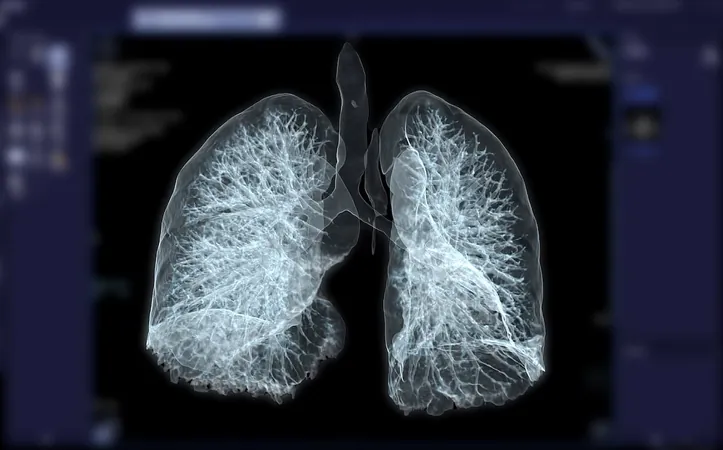
Revolutionary CT Scans: The Future of Pneumonia Diagnosis with Minimal Radiation Exposure!
2025-03-18
Author: Wei Ling
A groundbreaking study has revealed that ultra-low-dose chest CT scans could significantly enhance the early detection of pneumonia in vulnerable patients while minimizing radiation exposure. Conducted by researchers at the Sheba Medical Center in Israel, the findings are published in the latest issue of Radiology: Cardiothoracic Imaging.
Traditionally, CT scans have been considered the gold standard for diagnosing pneumonia. However, concerns have been raised about the potential long-term health risks associated with radiation exposure, especially for patients with weakened immune systems. The new ultra-low-dose scans reduce radiation exposure to a mere 2% of what a standard CT scan delivers—an impressive achievement for patient safety.
Lead researcher Dr. Maximiliano Klug emphasizes the significance of this study, stating, “This study paves the way for safer, AI-driven imaging that reduces radiation exposure while preserving diagnostic accuracy.” The potential for artificial intelligence to improve imaging quality is astounding, as researchers have developed an AI program that 'de-noises' low-dose scans to enhance clarity and readability.
The study involved 54 patients with compromised immune systems suffering from fevers, who underwent both a standard and an ultra-low-dose CT scan. Encouragingly, the AI-enhanced low-dose imagery yielded a remarkable 100% accuracy in detecting pneumonia and other lung issues according to a panel of radiologists. In comparison, the accuracy rate for the standard scans adjusted with AI was between 91% to 98%.
Dr. Klug noted the critical implications of these findings: “This pilot study identified infection with a fraction of the radiation dose. Our approach could inspire larger studies and ultimately reshape clinical guidelines, making denoised ultra-low dose CT the new standard for young immunocompromised patients.”
This advancement represents a significant step toward safer healthcare practices and improved outcomes for at-risk populations. The continued development of AI in medical imaging holds promising potential to transform how clinicians diagnose and treat serious conditions like pneumonia while enhancing patient safety.
Stay tuned as this research could lead to revolutionary changes in clinical practice, making pneumonia diagnoses quicker and safer than ever before!



 Brasil (PT)
Brasil (PT)
 Canada (EN)
Canada (EN)
 Chile (ES)
Chile (ES)
 Česko (CS)
Česko (CS)
 대한민국 (KO)
대한민국 (KO)
 España (ES)
España (ES)
 France (FR)
France (FR)
 Hong Kong (EN)
Hong Kong (EN)
 Italia (IT)
Italia (IT)
 日本 (JA)
日本 (JA)
 Magyarország (HU)
Magyarország (HU)
 Norge (NO)
Norge (NO)
 Polska (PL)
Polska (PL)
 Schweiz (DE)
Schweiz (DE)
 Singapore (EN)
Singapore (EN)
 Sverige (SV)
Sverige (SV)
 Suomi (FI)
Suomi (FI)
 Türkiye (TR)
Türkiye (TR)
 الإمارات العربية المتحدة (AR)
الإمارات العربية المتحدة (AR)